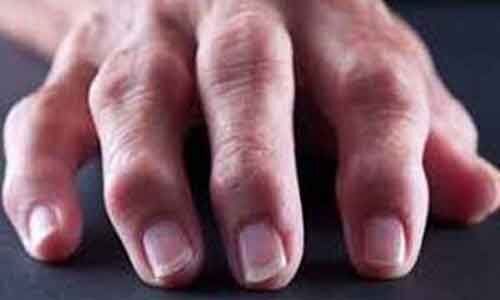- Home
- Medical news & Guidelines
- Anesthesiology
- Cardiology and CTVS
- Critical Care
- Dentistry
- Dermatology
- Diabetes and Endocrinology
- ENT
- Gastroenterology
- Medicine
- Nephrology
- Neurology
- Obstretics-Gynaecology
- Oncology
- Ophthalmology
- Orthopaedics
- Pediatrics-Neonatology
- Psychiatry
- Pulmonology
- Radiology
- Surgery
- Urology
- Laboratory Medicine
- Diet
- Nursing
- Paramedical
- Physiotherapy
- Health news
- Fact Check
- Bone Health Fact Check
- Brain Health Fact Check
- Cancer Related Fact Check
- Child Care Fact Check
- Dental and oral health fact check
- Diabetes and metabolic health fact check
- Diet and Nutrition Fact Check
- Eye and ENT Care Fact Check
- Fitness fact check
- Gut health fact check
- Heart health fact check
- Kidney health fact check
- Medical education fact check
- Men's health fact check
- Respiratory fact check
- Skin and hair care fact check
- Vaccine and Immunization fact check
- Women's health fact check
- AYUSH
- State News
- Andaman and Nicobar Islands
- Andhra Pradesh
- Arunachal Pradesh
- Assam
- Bihar
- Chandigarh
- Chattisgarh
- Dadra and Nagar Haveli
- Daman and Diu
- Delhi
- Goa
- Gujarat
- Haryana
- Himachal Pradesh
- Jammu & Kashmir
- Jharkhand
- Karnataka
- Kerala
- Ladakh
- Lakshadweep
- Madhya Pradesh
- Maharashtra
- Manipur
- Meghalaya
- Mizoram
- Nagaland
- Odisha
- Puducherry
- Punjab
- Rajasthan
- Sikkim
- Tamil Nadu
- Telangana
- Tripura
- Uttar Pradesh
- Uttrakhand
- West Bengal
- Medical Education
- Industry
BU study: A quarter of arthritis cases linked to excess weight

A new Boston University School of Public Health (BUSPH) study shows that weight loss between early adulthood and midlife lowers arthritis risk, and found no evidence of any persistent risk of arthritis for people who were heavier earlier in life and then lost weight.
The study, published in the journal Arthritis Care & Research, also estimates that nearly a quarter of arthritis cases in the U.S., corresponding to 2.7 million people, are attributable to excess weight.
"Policies that address the social and structural factors that promote weight gain are urgently needed. Our findings suggest that such measures could have a significant impact on reducing the incidence of arthritis, a leading cause of disability and chronic pain in the US," says study corresponding author Dr. Andrew Stokes, assistant professor of global health at BUSPH.
"Although weight loss could represent a viable way to reduce arthritis risk at the individual level, we found that the best solution at the population level would be to prevent weight gain," says study lead author and BUSPH alumna Kaitlyn Berry, who was a research fellow at BUSPH while working on the study and is now at the University of Minnesota School of Public Health.
The researchers used data from the National Health and Nutrition Examination Survey (NHANES) on adults 40-69 years old, to categorize individuals based on the changes in their body mass indices (BMI) from early adulthood to mid-life, and analyzed the association between these BMI trajectories and the risk of developing an arthritis condition within 10 years.
Of the 13,669 people in the study, 3,603 developed an arthritis condition. Compared with those who had a BMI in the "normal" range in both early adulthood and middle age, those who went from the "normal" range to the "overweight" or "obese" ranges, those who went from the "overweight" range to the "obese" range, and those whose BMIs were in the "obese" range at both points were all significantly more likely to develop arthritis conditions.
On the other hand, those whose BMIs went from the "obese" down to the "overweight" range had a significantly lower risk of developing arthritis compared to those whose BMI remained in the "obese" range. Additionally, those who lost weight had the same likelihood of developing arthritis as those whose BMIs stayed in the "overweight" range.
"These findings highlight the need for lifelong public health measures to prevent obesity at younger ages as an important step to curb later life musculoskeletal and joint health problems such as osteoarthritis. This is particularly important as musculoskeletal pain is a leading cause of disability globally," says study co-author Dr. Tuhina Neogi, professor of epidemiology at BUSPH, professor of medicine at the Boston University School of Medicine, and chief of rheumatology at Boston Medical Center.
Hina Zahid Joined Medical Dialogue in 2017 with a passion to work as a Reporter. She coordinates with various national and international journals and association and covers all the stories related to Medical guidelines, Medical Journals, rare medical surgeries as well as all the updates in the medical field. Email: editorial@medicaldialogues.in. Contact no. 011-43720751
Dr Kamal Kant Kohli-MBBS, DTCD- a chest specialist with more than 30 years of practice and a flair for writing clinical articles, Dr Kamal Kant Kohli joined Medical Dialogues as a Chief Editor of Medical News. Besides writing articles, as an editor, he proofreads and verifies all the medical content published on Medical Dialogues including those coming from journals, studies,medical conferences,guidelines etc. Email: drkohli@medicaldialogues.in. Contact no. 011-43720751


